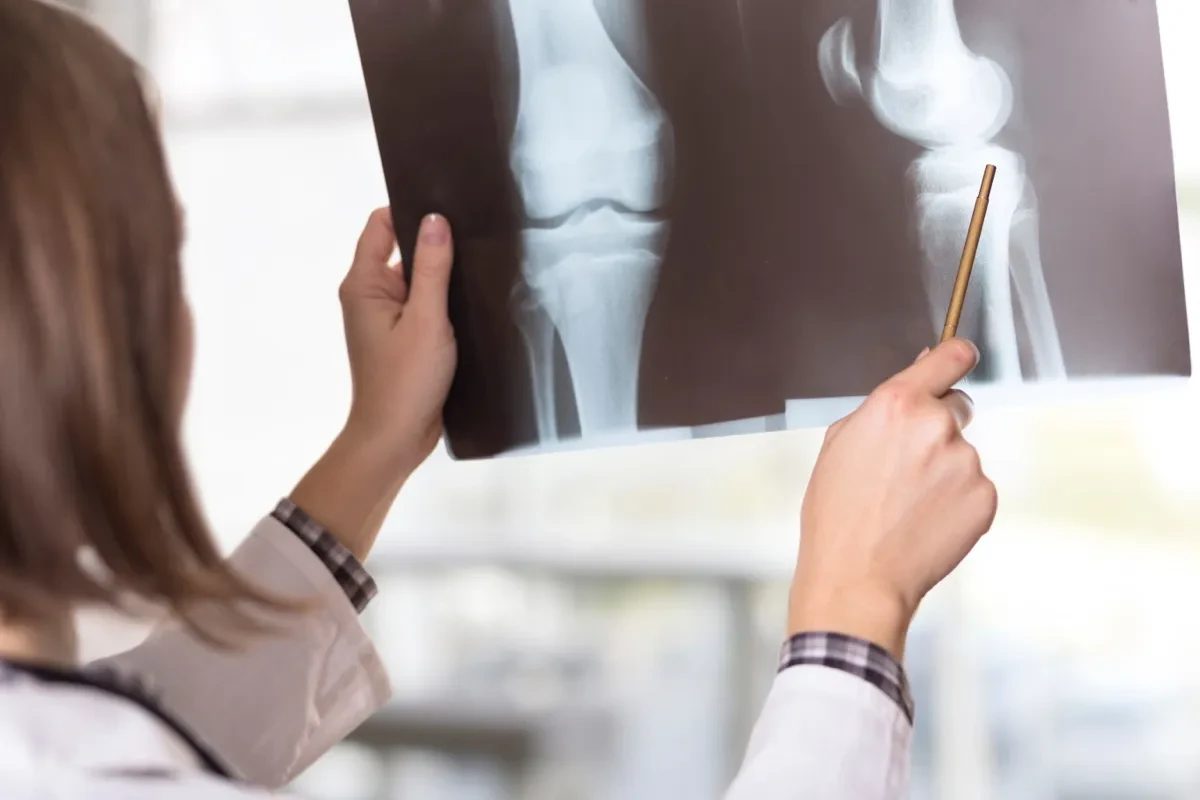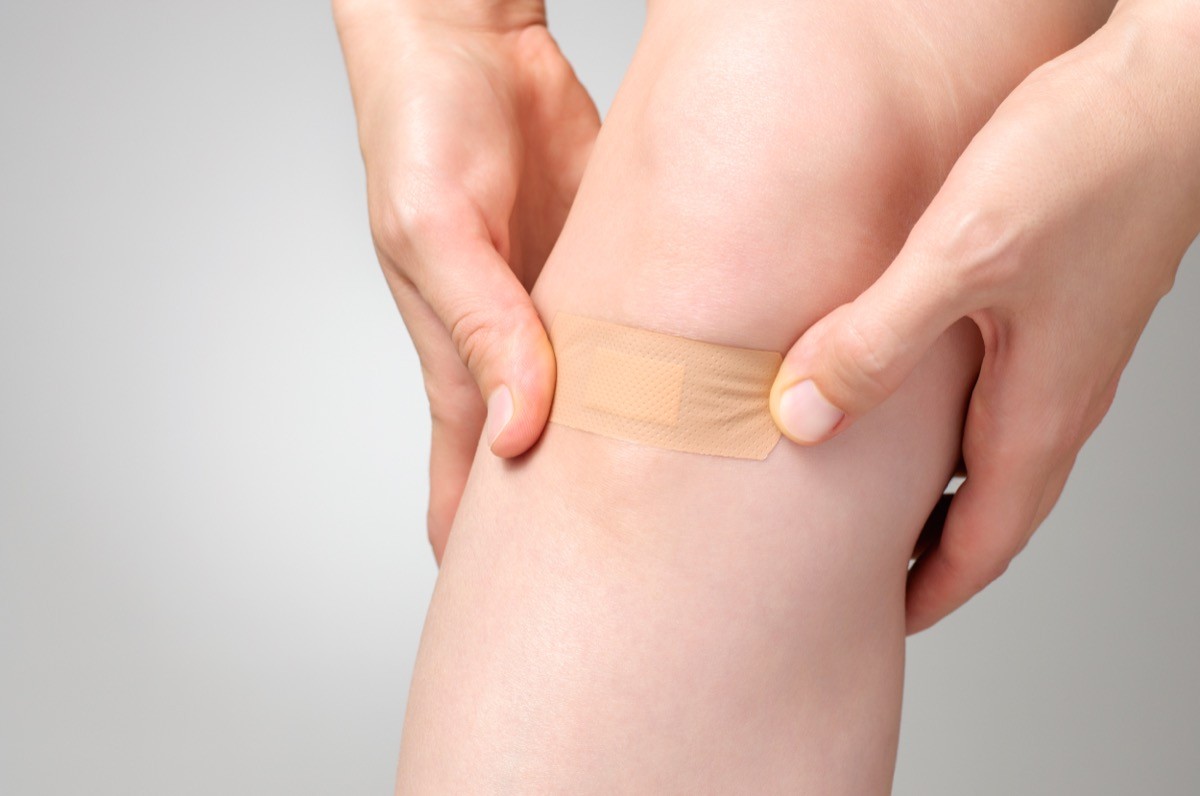Doctors Reveal the Top 8 Reasons You Need More Calcium in Your Diet

When our nutritional needs are being met with all of the vitamins and minerals our bodies require, we rarely realize just how foundational they are to our health. However, if you develop a deficiency, you may notice a whole host of vital functions beginning to break down. In the case of calcium, it’s especially important to ensure that you’re getting enough as you age.
Most adults require at least 1,000 mg of calcium per day, with that number increasing to 1,200 mg in senior men and 1,300 mg in senior women between the ages of 51 and 70.
“As adults, we might tend to drink milk less often or think it’s less important to keep our calcium levels topped up. It can become harder to absorb calcium the older we get, too, as often experienced by women during menopause,” shares Daniel Atkinson, MD, clinical lead at Treated, who also notes that certain medications can prevent proper calcium absorption.
Most people should be able to get enough calcium from dietary sources by eating foods like dairy, tofu, leafy greens, cruciferous veggies, nuts, and more. However, supplements can also be useful for some individuals whose levels are chronically low.
The best way to determine what’s right for you is to discuss your concerns with your doctor and to request a calcium blood test, a common component of a basic metabolic panel. If your doctor does, in fact, recommend upping your intake through calcium-rich foods or supplements, these are the eight health benefits you can expect to gain.
RELATED: 16 Vitamin D Deficiency Symptoms to Watch Out For, According to Doctors.
1
Calcium supports strong bones.

If you’re only aware of one way that calcium benefits the body, it’s almost certainly that the mineral supports strong, healthy bones. That’s because calcium, along with other vitamins and minerals including vitamin D, phosphorus, magnesium, and zinc, make up the building blocks of bone tissue.
“About 99 percent of the calcium in our bodies is stored in our bones, which helps maintain their structure and strength,” explains James Lyons, MD, a physician currently working as a medical consultant for Synergy Houses. “Getting enough calcium, especially as we age, significantly prevents osteoporosis and reduces the risk of fractures.”
2
Calcium keeps muscles working properly.

There’s another way that getting ample calcium could improve your mobility—it helps keep your muscles working as they should.
“Calcium is involved every time you move a muscle—whether you are walking, stretching, or even breathing,” says Lyons, explaining that the mineral allows the muscles to contract and relax smoothly. “You might experience cramps, muscle spasms, or general weakness without enough of it.”
RELATED: 6 Signs You’re Getting Too Much Calcium, According to Doctors.
3
Calcium helps children build strong teeth.

According to Sandip Sachar, DDS, a top-rated New York City-based dentist and the owner of Sachar Dental, calcium is critically required in infants and children as they develop both their baby teeth and permanent teeth.
“Deficiency of calcium during development of the teeth can lead to delayed eruption of both baby and permanent teeth, weaker enamel which can lead to increased propensity for cavities, increased risk of gum disease, and a high risk for future teeth loss as adults,” she explains.
4
Calcium also helps you keep your teeth as an adult.

While calcium can certainly enhance your overall bone health, there are specific benefits to having strong jaw bones and alveolar bones, which anchor your teeth in place.
“Calcium promotes remineralization, and prevents jawbone deterioration from bacteria, wear and tear and the effects of aging,” says Sachar. “This is even more important in postmenopausal women.”
Additionally, calcium helps reduce the risk of gum disease, or periodontitis, which can also contribute to tooth loss. By maintaining healthy gums, you can reduce your odds of infections and reduce your risk of tooth loosening.
RELATED: 10 Foods That Lower Cholesterol, According to Dietitians.
5
Calcium strengthens tooth enamel.

Another dental benefit of getting enough calcium is that it helps to remineralize tooth enamel after erosion from acidic foods, bacteria, and plaque.
“Fun fact: Enamel is the hardest substance in the body, even harder than our bones, and is 96 percent made of a combination of calcium and phosphate, called hydroxyapatite,” Sachar shares.
Providing your body with those crucial minerals can in turn prevent tooth sensitivity and pain because erosion of tooth enamel from a lack of calcium can expose the dentin, which is the inner part of the tooth under the enamel.
“Exposed dentin leads to increased sensitivity to hot and cold foods as well as acidic foods,” Sachar explains. “Calcium promotes healthy enamel and remineralization of the enamel keeping it strong.”
6
Calcium supports nerve function.

Calcium also plays a behind-the-scenes role in helping your nerves do their job. In particular, it allows neurons to communicate through synapses, the points at which nerve cells meet.
“It helps transmit messages between your brain and body so you can react, move, and feel appropriately. A lack of calcium can disrupt those signals and lead to tingling or numbness,” Lyons explains.
RELATED: 21 Surprising Signs You Have a Vitamin Deficiency.
7
Calcium helps your heart stay on beat.

Your heart is a muscle, and like all other muscles, it relies on calcium to function.
“Calcium helps regulate your heartbeat and supports healthy blood vessel contraction,” says Lyons. “However, while dietary calcium is good for heart health, taking too much in supplement form may not [be], so balance is key.”
8
Calcium facilitates healthy blood clotting.

Lyons also says that calcium plays “a small but critical part of your body’s healing process.” In particular, it helps to activate certain proteins in the clotting cascade (sometimes called the coagulation cascade), a complex series of reactions that lead to the formation of a clot.
“This process relies on calcium to ensure the clots form properly,” explains Atkinson. “Low calcium levels can mean you bleed heavily when cut, which can lead to bruising. For women, inadequate calcium levels could cause periods to be heavier than usual.”
If you notice poor clotting or any other signs of low calcium, speak with your doctor about screening for a deficiency.